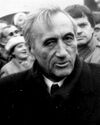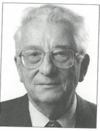1980 Seketese General Election
This article is incomplete because it is pending further input from participants, or it is a work-in-progress by one author. Please comment on this article's talk page to share your input, comments and questions. Note: To contribute to this article, you may need to seek help from the author(s) of this page. |
| |||||||||||||||||||||||||||||||||||||||||||||||||||||||||||||||||||||||||||||||||||||||||||||
All 193 seats to the Commons Council of the Hérvynsken 97 seats needed for a majority | |||||||||||||||||||||||||||||||||||||||||||||||||||||||||||||||||||||||||||||||||||||||||||||
|---|---|---|---|---|---|---|---|---|---|---|---|---|---|---|---|---|---|---|---|---|---|---|---|---|---|---|---|---|---|---|---|---|---|---|---|---|---|---|---|---|---|---|---|---|---|---|---|---|---|---|---|---|---|---|---|---|---|---|---|---|---|---|---|---|---|---|---|---|---|---|---|---|---|---|---|---|---|---|---|---|---|---|---|---|---|---|---|---|---|---|---|---|---|
| Opinion polls | |||||||||||||||||||||||||||||||||||||||||||||||||||||||||||||||||||||||||||||||||||||||||||||
| Turnout | 95.7% | ||||||||||||||||||||||||||||||||||||||||||||||||||||||||||||||||||||||||||||||||||||||||||||
| |||||||||||||||||||||||||||||||||||||||||||||||||||||||||||||||||||||||||||||||||||||||||||||
The 1980 Seketese General Election was held on March 22 1980 to elect members of the Commons Council, the lower house of the Hérvynsken. The election was called after the Democratic Party and Liberal Party withdrew from government over disputes with the Socialist on currency reform and SekOil ownership. The President of Seketan, Reþon Barreos formally dissolved the Commons Council on January 30 1980 at the request of Prime Minister Patjik Moulette.
Moulette and his Socialist Party won their first majority government, winning 111 seats and going on to form the first post-revolution single party government which would last until 1996. The Democrats would remain the largest opposition party despite losing 17 seats, with Michjeal Simonson resigning as their leader after the election. The Kjeforates lost half their votes from 1978 and lost 18 seats, making their caucus even smaller and less powerful in the Commons Council. Smaller parties like the the Liberals, Labour, and National Union all had minimal gains and loses.



